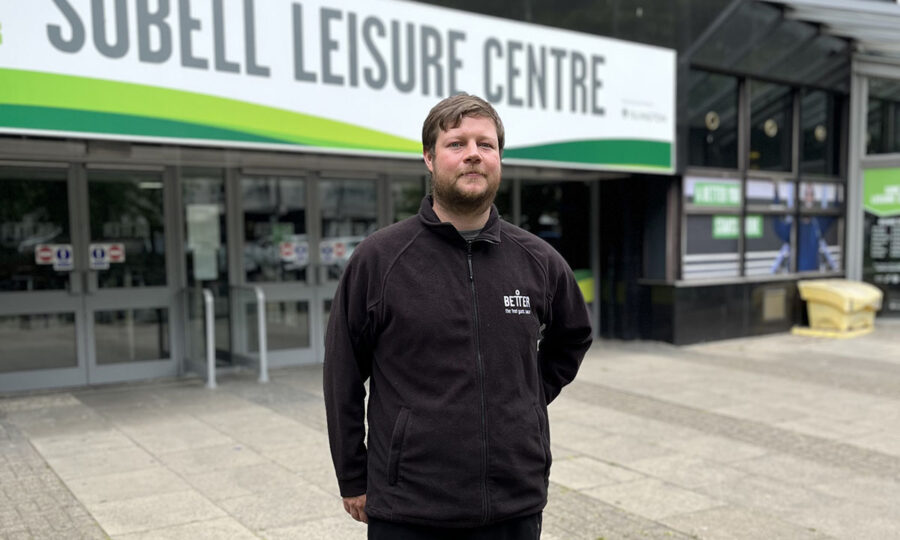Better together

Mikael Kiviniemi, community sports manager at Better, on the wide range of activities on offer, community partnerships and the importance of making physical activity accessible to all
Tell us about your role.
I focus on increasing participation and making sure our leisure centres are accessible to everyone in the community. That means working with local clubs, schools, community groups, the council and a variety of different organisations.
How do the different Islington centres vary?
One of the great things about Islington is that there are so many different types of leisure centre. Sobell is our largest but, due to flooding, there are a lot of works going on, so we currently have a reduced programme.
Across the borough, four centres have swimming pools and most have gyms and fitness classes. We also have unique venues like Market Road football pitches and the Islington tennis centre, which is one of the only indoor tennis centres in London. We also have multi-use sports halls at Finsbury leisure centre. Between them we offer lots of different activities, so there is something for all ages, interests and abilities: from tots swimming to senior activities.
How do you cater to Islington’s diverse community?
We work closely with Age UK Islington to run Better get together sessions for people aged 60-plus. The idea is that people can come and do a variety of activities, including short mat bowls, table tennis and exercise classes, then stay for tea or coffee in our social area. They are low-cost, affordable sessions: £2.50 for two-and-half hours. Age UK helps us by providing a volunteer and promoting the session. We have two at Sobell leisure centre and one at Finsbury leisure centre. At Finsbury, we run it in the sports hall and people can have a go at badminton, table tennis or short tennis.
Disability Sports Coach have a community club in Islington, with a multi-sports session for people with disabilities at Sobell. Lots of schools and clubs use the centres, too. Most schools will come and do school swimming sessions with us to make sure children get to the level they should before leaving primary school.
What about people who can’t afford a gym or club membership?
To help more people to access our centres, we have concessionary offers for a variety of memberships: juniors, students, seniors, people with disabilities and for people on benefits. We also have some free schemes. You don’t need to be a member to take part in most activities, but for people who use the centres regularly, there is a low-cost pay and play membership, which gives discount on activities. There are also a variety of membership options to make use of our centres more cost-effective.
We also partner with Access to Sports, which operates across the borough. They provide free activities for young people year-round and, during school holidays, a free sports camp at our Finsbury centre. Islington Council has also funded free swimming lessons for the school holidays, across all four pools.
Any stand-out success stories?
We recently ran a family swimming project at Cally pool and gym, to engage families that don’t swim together and to encourage people who can’t swim or have a fear of water to give it a go. We offered swimming lessons with instructors and other families to improve ability and confidence.
A lot of the families were from Black and ethnic minority backgrounds, and we learned that haircare is one of the big barriers for them when it comes to swimming. So, we worked with Soul Cap to provide swim caps specifically for people with more voluminous hair. They provided free swim hats, goggles, bags and water bottles. We also allocated extra credit for them to come and use the pool after the project.
The feedback from the scheme was really positive: one participant said they had been scared of swimming pools their whole life, due to childhood experiences, and the lessons helped them overcome that. They were so happy that they can now enjoy being in the water and watch their children do the same. People also said they loved learning as a family. Traditionally, lessons are targeted at children and the parents sit on the side-lines. This provided a really inclusive environment for families to learn together and bond.
What’s the best part of your job?
Leisure centres are a vital community asset and I think it’s important they are accessible for everyone. The health benefits of sport and physical activity are well documented – we know the positive impact it can have on people’s lives – and growing up, I absolutely loved taking part in sports. I have always found it valuable, so doing a job where I am hopefully promoting and creating those opportunities for other people is great.
To find out more about what’s on offer at Better leisure centres and to find one near you, visit the Better website.
